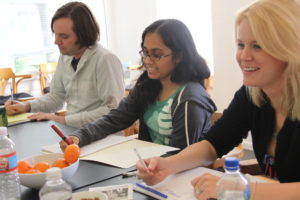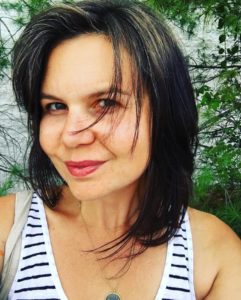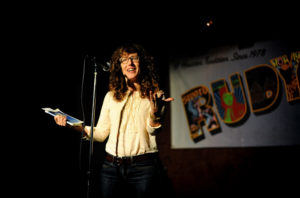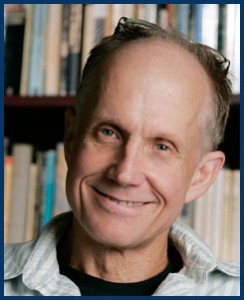Inprint Writers Workshops: offering more and doing more for the community
February 22, 2018, by Inprint Staff
 “We love meeting the wonderful aspiring writers from all walks of life who come to Inprint,” says Inprint Executive Director Rich Levy. “Some of them have been writing for a while and others are just taking a workshop as a hobby, supplementing an already busy work and family schedule. The thing that they all have in common is a desire to tell a story, whether through fiction, poetry, or personal essay. Learning how to shape one’s thoughts in writing is hard but also an exciting process, you learn so much about yourself, the world, and your place in it.”
“We love meeting the wonderful aspiring writers from all walks of life who come to Inprint,” says Inprint Executive Director Rich Levy. “Some of them have been writing for a while and others are just taking a workshop as a hobby, supplementing an already busy work and family schedule. The thing that they all have in common is a desire to tell a story, whether through fiction, poetry, or personal essay. Learning how to shape one’s thoughts in writing is hard but also an exciting process, you learn so much about yourself, the world, and your place in it.”
Over the past few years, Inprint has experienced an upsurge in demand for writers workshops. Meeting this demand has been a high priority for the organization.
“These workshops have been helping Houstonians enhance their creative writing skills since 1991,” says Marilyn Jones, Inprint Associate Director who manages the Inprint Writers Workshops. “We work hard to maintain an intimate and supportive environment in each workshop, so most workshops are limited to 12 people. We also want to offer high quality workshops, so instructors are rotated regularly to avoid burn out, and all participants are asked to fill out evaluations at the end of the sessions to ensure we are meeting participants’ interests.” Continue reading


 A first-year in the University of Houston Creative Writing PhD Program for poetry, Cait Weiss is a recipient of an Inprint C. Glenn Cambor/MD Anderson Foundation Fellowship, is an Inprint Writers Workshop instructor and an Inprint Poetry Busker. Cait recently won the Zone 3 Press First Book Award for her poetry collection Valleyspeak, judged by Douglas Kearney. It will be published by Zone 3 in spring 2018.
A first-year in the University of Houston Creative Writing PhD Program for poetry, Cait Weiss is a recipient of an Inprint C. Glenn Cambor/MD Anderson Foundation Fellowship, is an Inprint Writers Workshop instructor and an Inprint Poetry Busker. Cait recently won the Zone 3 Press First Book Award for her poetry collection Valleyspeak, judged by Douglas Kearney. It will be published by Zone 3 in spring 2018. Last month, Susan Briante visited Houston as featured guest of the
Last month, Susan Briante visited Houston as featured guest of the 



